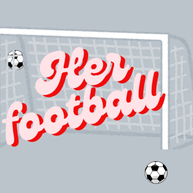As we look back at EURO 2025, we don’t just see the success and determination of England or newcomers Wales or Poland, we see a change movement from financial incentives to future hosts due to the economic activity and growth of the women's game.
Switzerland enjoyed an approximate £173.6 million boost in economic activity, with the influx of international fans creating a 9% increase in hotel bookings by European visitors compared to July 2024. The fans flocked out, and the likely reason for the significant economic activity could also be the cost of living in Switzerland.
EURO 2025 saw the most extensive line-up of sponsors in UEFA tournament history. Their, with 21 featured brands, drove a 150% increase in sponsorship compared with the previous edition. For example, Adidas ran a campaign with Alessia Russo and Aitana Bonmati.
Nike produced a “Scary Good” campaign featuring several female footballers portrayed as terrifying opponents due to their skilful and fearless play.
They also continued to capitalise ‘home’ and ‘bringing it home’ from 2022, when the Lionesses won. The word home was capitalised, but the H was Roman numerals for two, as they brought it home twice. They plastered that on their plane home and the players' shirts at the parade, making them available for fans to purchase.
Also, TOGETHXR, a media brand set up by female athletes in collaboration with the Lionesses and Nike, took their token saying “everyone is watching women's sport” and changed it to “everyone is watching the Lionesses.” They put it on top and sold it, as the players wore it on their way out to the Euros.
Interestingly, Nike was asked if it wanted to be the main clothing sponsor, but it declined. The only team at the Euros whose shirts were produced by Nike was England; the rest were predominantly Adidas, which impacted fans' access to England merchandise in Switzerland, as it's a country that borders Germany, the home of Adidas.
Companies have monetised stars like Pepsi and Walkers, using lionesses or big names in women's football to support women's sport.
To grow and protect the long-term health of the women's game in Switzerland, they have secured €11m in funding for the Here to Stay legacy programme. It aims to double the number of female players, coaches and referees in Switzerland by December 2027. There was an immediate uptake and popularity in the Swiss Women's Super League opening weekend, with a 42% increase in overall match attendance compared with the previous season.
A main desire for these Euros was to fill out the stadiums ( though I would not say it was hard, given how small they were). 29 of the 31 games were sold out. Due to the affordability of tickets ( not actually anything else), it drew an average attendance of more than 20,000 for the first time at a women’s EURO.
A record 657,291 tickets were sold, 35% of which went to international spectators.
The fan zones at the eight host cities were more than 500 million across all programming.
On the pitch, there was a record 106 goals in a series of penalty shootouts, the most ever, and the first in the modern era for a final to be determined on penalties. Five of the seven knockout games went to extra time or penalties.
With four players apiece, finalists Spain and England were well represented in the UEFA Team of the Tournament. Aitana Bonmatí was named Player of the Tournament, and Michelle Agyemang was awarded Young Player.
While not literally everyone watches The Lionesses, their recent victory achieved a massive audience of 11.6 million viewers on BBC One, representing 59% of all TV audiences at the time, with a combined peak of 16.2 million across BBC and ITV.


Add comment
Comments